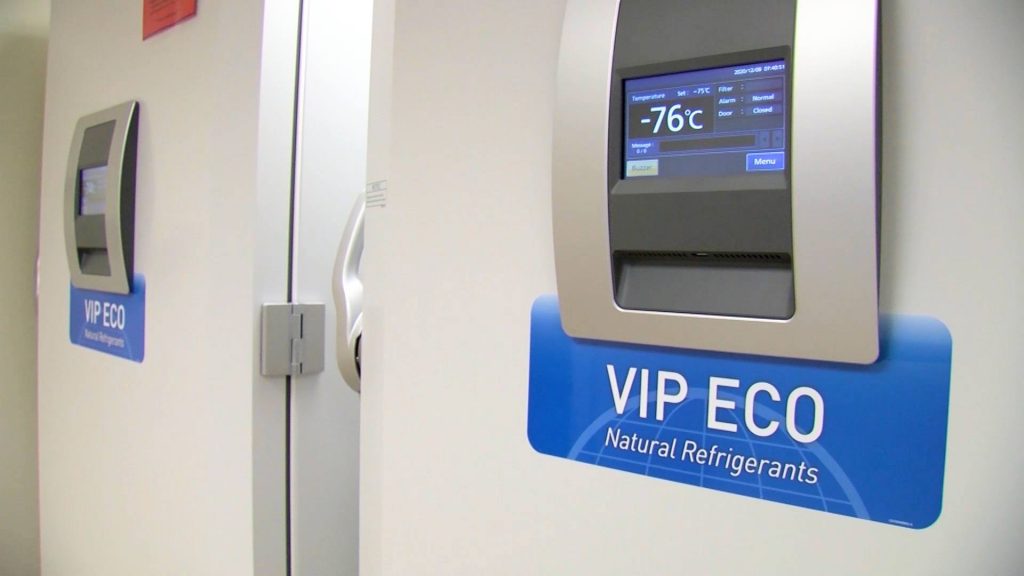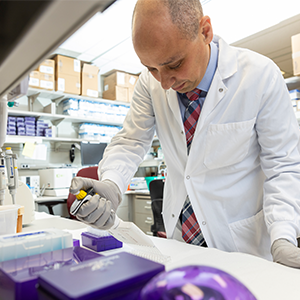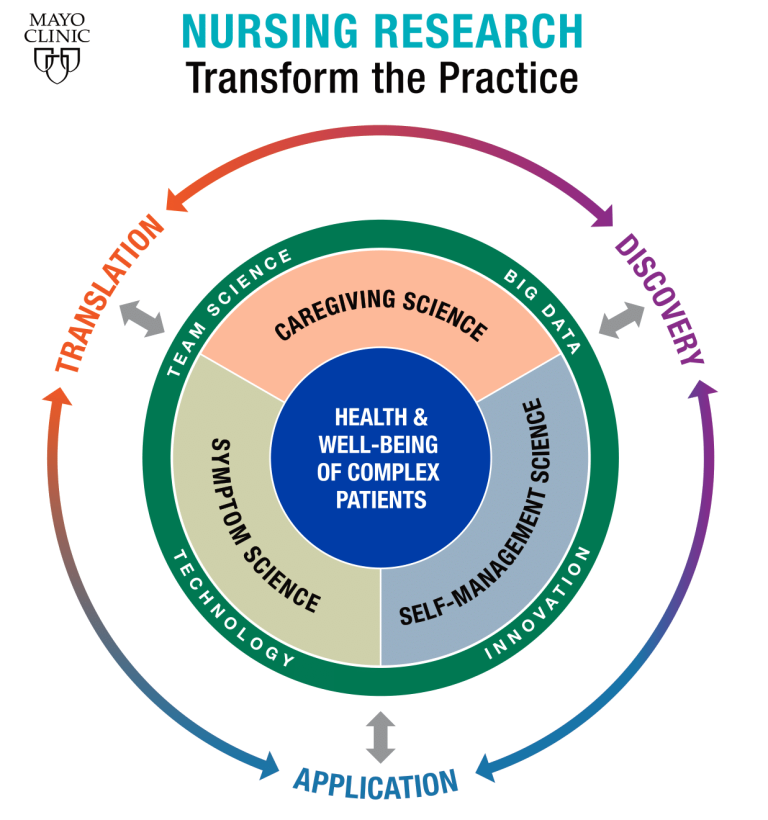
Teams at Mayo Clinic are preparing for the anticipated arrival of COVID-19 vaccines, following federal approval. Different vaccines have different storage requirements. For instance, the Pfizer/BioNTech vaccine must be stored at minus 70 degrees Celsius (minus 94 degrees Fahrenheit) while Moderna has said that its vaccine needs to be stored at minus 20 degrees Celsius (minus 4 degrees Fahrenheit).
Mayo Clinic has multiple ultralow temperature freezers designated for vaccine storage and distribution. Each freezer can hold up to 100,000 doses of vaccine. Mayo Clinic has used these freezers for other therapeutics that have required low-temperature storage but none at such low temperatures.
Jason Christensen, Pharm.D., senior director of Pharmacy at Mayo Clinic, offers some insight into how these freezers work and will safely store the vaccines.
"What you see behind me are examples of the ultracool freezers that have been described as essential to the COVID vaccine distribution model. These freezers are capable of going down to minus 86 degrees Celsius. And for reference, that would be equivalent to minus 122.8 degrees if we were looking at it in degrees Fahrenheit."
Watch: Jason Christensen talk about the ultracool freezers
Journalists: Broadcast-quality soundbites with Christensen are available in the downloads at the end of the post as well as b-roll video of the freezers. Please "Courtesy: Jason Christensen, Pharm.D.,/Pharmacy/Mayo Clinic."
How cold is that? For perspective, the Food and Drug Administration recommends household freezers be kept at zero degrees Fahrenheit (minus 18 Celsius) and household refrigerators at 40 degrees Fahrenheit (4 degrees Celsius).
"I have been told that on average at the South pole during the middle of winter is around negative 50 degrees Celsius. The Pfizer vaccine will be stored at minus 70 degrees Celsius, so quite a bit colder than the South pole in the middle of winter," Christensen says.
It's not just the ability to freeze at ultracool temperatures that makes these freezers special. Christensen explains what makes them unique.
"Outside of the large outer door, they also have smaller inner doors. Both are insulated, and these are thicker insulation than you might find in your residential freezers. And that's all around maintaining those ultracool temperatures. Also, their compressors in circuits are designed in such a way that they cool not only the chamber, but the critical compressor components all around, minimizing heat generation."
Being able to monitor temperature control is another aspect of the freezers.
"What you notice on the doors is temperature monitoring that's built into the freezer itself," says Christensen. "In addition, we will have wireless temperature monitors that communicate over Wi-Fi for continuous 24/7 temperature monitoring. A third redundancy is a data logger that is housed within the unit itself. If something happened with the alerting on the unit, or the continuous 24/7 monitoring that we have in place, we will also have a data logger within the unit so that we can validate the temperatures that were maintained during that time."
For the safety of its patients, staff and visitors, Mayo Clinic has strict masking policies in place. Anyone shown without a mask was recorded prior to COVID-19 or in an area not designated for patient care, where social distancing and other safety protocols were followed.
Information in this post was accurate at the time of its posting. Due to the fluid nature of the COVID-19 pandemic, scientific understanding, along with guidelines and recommendations, may have changed since the original publication date.
For more information and all your COVID-19 coverage, go to the Mayo Clinic News Network and mayoclinic.org.







